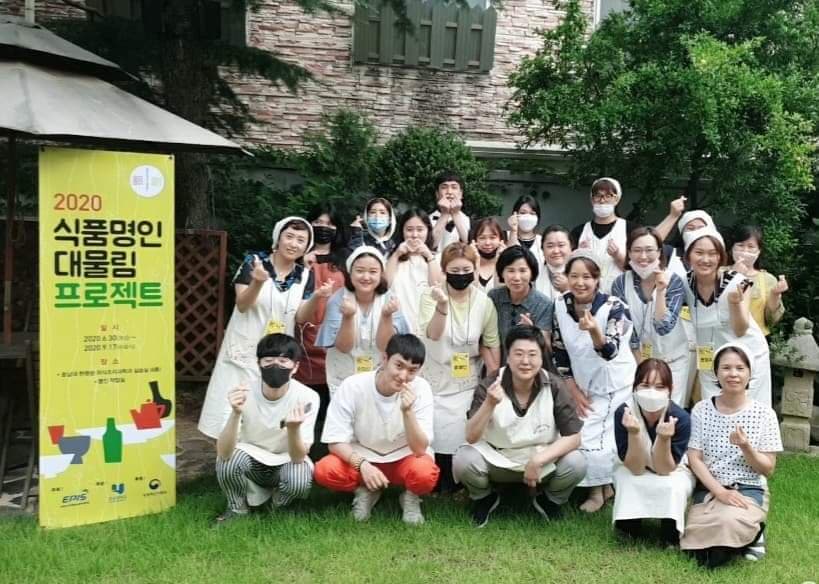Food and Thought from the Masters
An Experience in Traditional Korean Cuisine
Written by Kang “Jennis” Hyeon-suk.
Back in June, I read an interesting article in the news. It was looking for people who were interested in learning about traditional Korean foods from several Korean culinary masters. The project was named Daemullim (대물림), which refers to that which is passed on to one’s posterity. I thought that I was the type of person they were looking for because I love to cook Korean dishes, and I have been thinking about sharing my dishes with others someday. So, I applied, promising not to miss a single class. I was selected and now I am so happy to be one of the participants. I would like to start this article off with a short interview to introduce the person who organized this amazing program, Song Ki-hee, a professor in the Department of Cooking Science at Honam University.
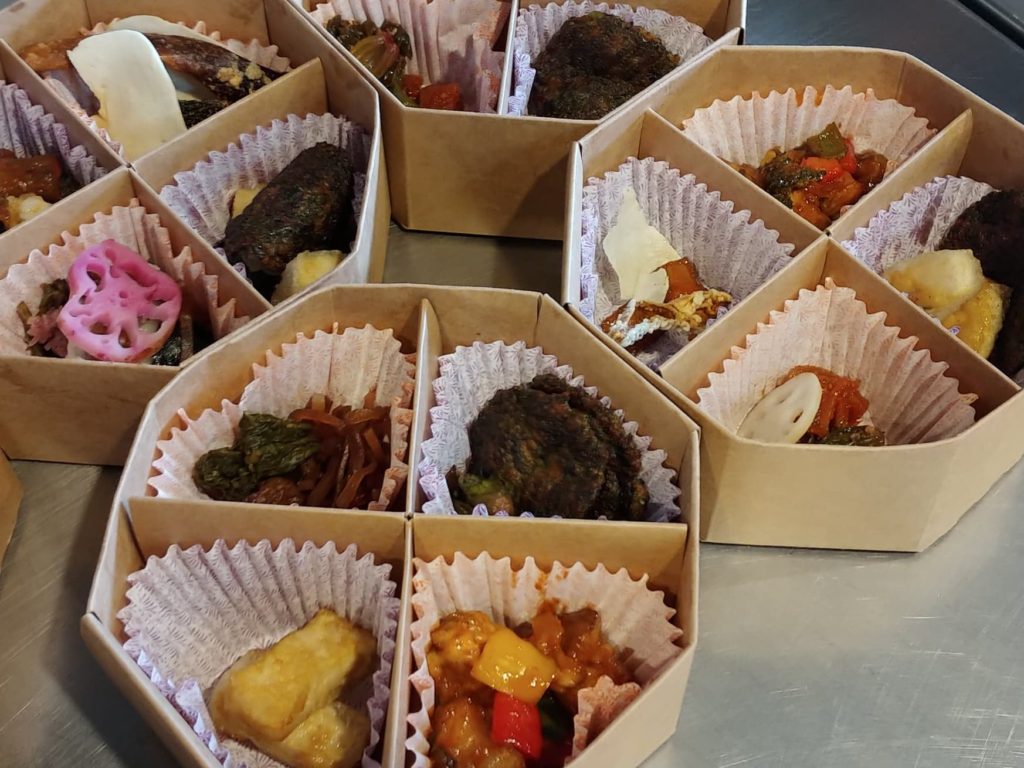
Jennis Kang: Hello, Professor Song. I appreciate you sparing time to do this interview for the Gwangju News. As a Gwangju resident, I remember you worked as a broadcaster for a long time. Now your new career as a professor of cooking science seems quite different from your previous work. Why did you start this new career at Honam University?
Song Ki-hee: Thank you for the opportunity to do this interview. People who knew me as an announcer and reporter are surprised to see me working as a professor in the field of food science. But once, when I worked as the head of the public relations department at Gwangju MBC, I held an exhibition on “The Tastes of the Jeolla Provinces.” We exhibited kimchi at that time, and the president of the MBC broadcasting company fell in love with the taste of local kimchi. After that, I was given an assignment by him to find the diverse tastes of Jeolla. I worked on projects to find local foods and helped local restaurants survive. I felt the owners of the restaurants should learn about service, the flow of trends, and marketing strategy. A study of local foods was also needed. I think the future industries of Jeolla might be its nature and food. That is why I got a PhD in food culture from Kyonggi University to prepare for my second career. Maybe my genes are rooted deep in the field of food.
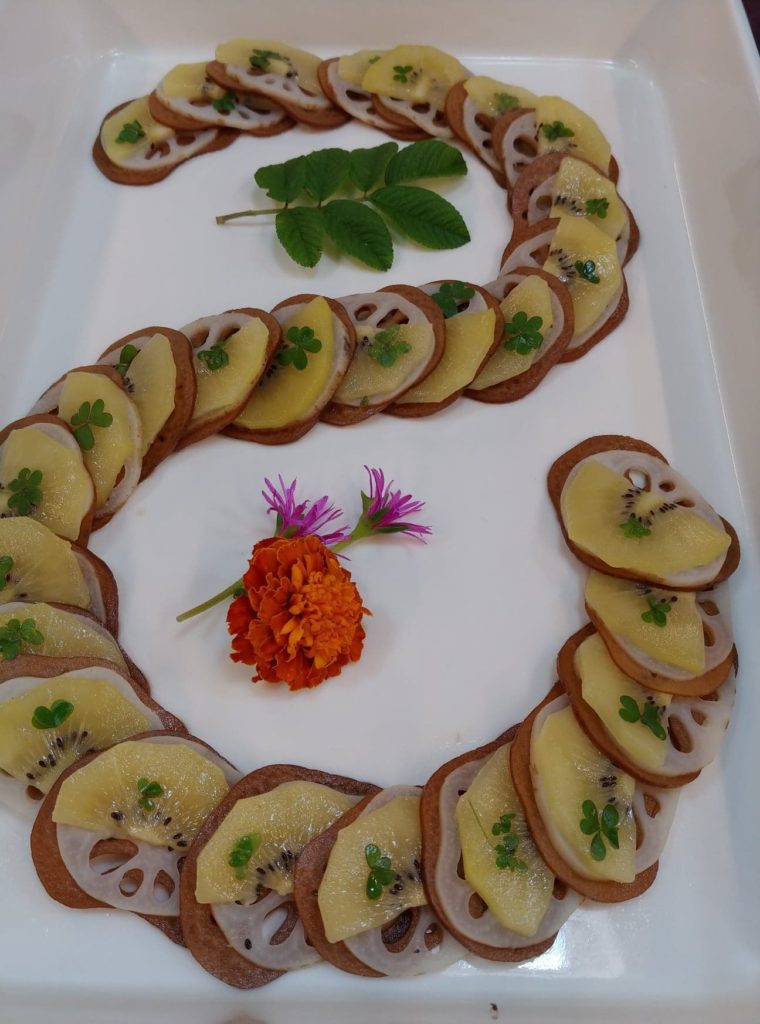
Jennis: So, you give lectures to your students about the flow of trends and the strategies of marketing. I guess that this is quite necessary for students who are going to run their own shops and restaurants someday. This year, you launched the Daemullim Project. I think it must not have been easy to get support from the government for consecutive projects. Would you tell us what the merits of your programs are?
Song Ki-hee: Yes, thankfully this program is supported by EPIS [Education, Promotion, and Information Services], an agency of the Ministry of Agriculture, Food, and Rural Affairs. This program, as its name suggests, is for passing Korea’s present food culture on to future generations. Gwangju and the Jeolla provinces are surrounded by wide seas and broad fields that are abundant in foodstuffs and condiments. So, there are a lot of hidden masters who have their own secret recipes in these areas. As a local university, I think we have the responsibility to find and preserve our traditional food culture.
Jennis: I appreciate your efforts in this area. I think it must have been a challenge to organize this program – to find culinary masters of diverse foods and to conduct interviews with the applicants to select participants. Would you tell me what the hardest part was?
Song Ki-hee: Yes, to schedule master chefs, who are famous and busy, and to choose only 20 participants from among 50 applicants, was not easy. Most of all, we needed to take precautions against COVID-19. All the participants have their temperature checked before class and each of them must wear masks during the classes.
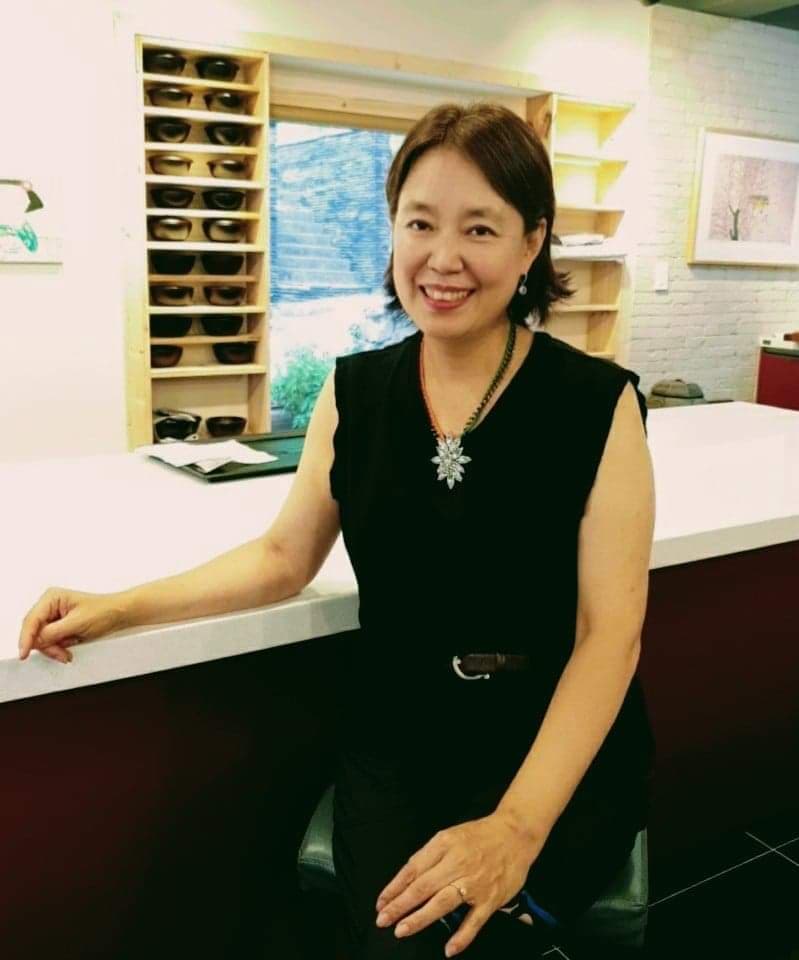
Jennis: Wow, this is quite a highly competitive program. Can you tell what kind of people have been selected to participate in this program – what purposes do they have for participating?
Song Ki-hee: When we planned to open these classes at Honam University, we thought it would be for young people who want to set up food businesses. The range in the participants’ age, however, is wide – from 20 to 49. Most of them are students, but there are housewives, web designers, cooks, and some of them already have their own stores. This program is not just for passing on present food culture. The participants opening their own shops will surely want to survive in this competitive business world. That is why the Department of Cooking Science at Honam University offers marketing skills along with cooking classes.
Jennis: I see. Would you please introduce the culinary masters who are participating in this program? Who are they? What kind of foods do they teach the participants how to make?
Song Ki-hee: The participants learn how to make rice cakes, traditional beverages, desserts, and a variety of pickled vegetables from five masters. They are Korea’s most renowned experts on food: Oh Hee-sook, Choi Young-ja, Min Kyung-suk, Park Hye-ran, and Jeong-gwan, a Buddhist monk who has become a global star on Netflix’s Chef’s Table. The participants will also do a temple-stay to get a chance to ask themselves the fundamental questions of why to cook, what to cook, and how to cook with Monk Jeong-gwan.
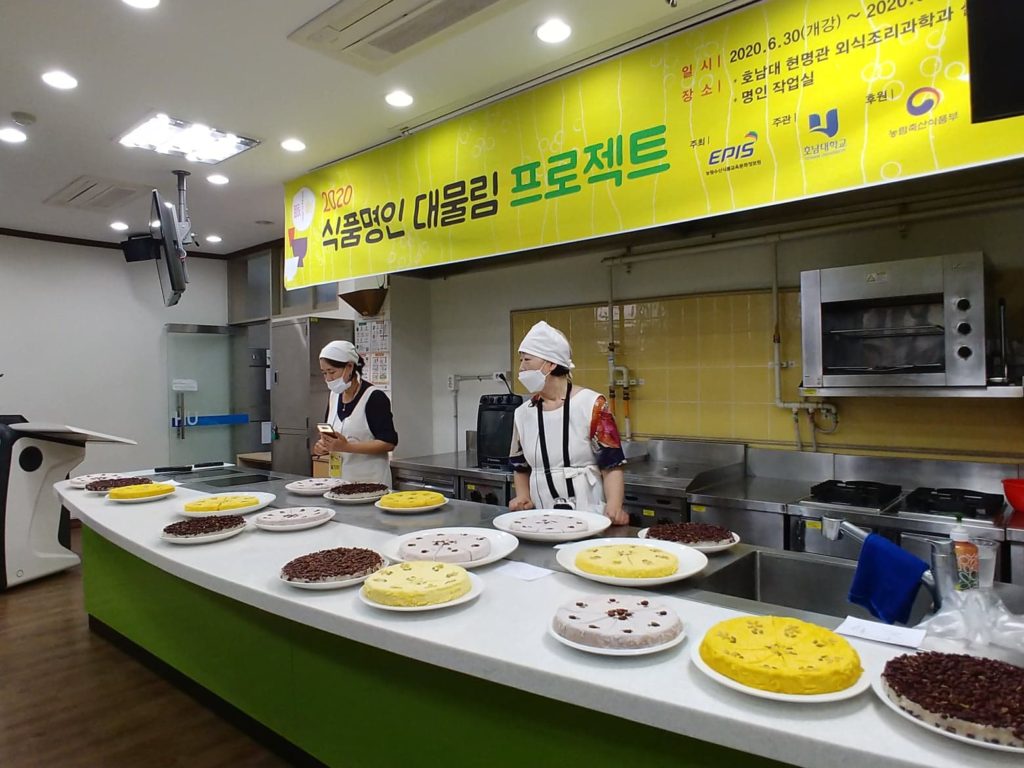
Jennis: Thank you for your time, Professor Song. I cannot wait for the classes to begin!
The Project Begins
After the interview with Professor Song, the series of culinary classes did indeed soon begin. The program began on June 30th and is set to continue running through September 17th. Classes meet every Tuesday and Thursday from 9:30 a.m. to about 5–6:00 p.m. In addition to cooking classes by the master cooks, lectures on marketing are provided by Honam University professors, as well as by lecturers from the Ministry of Agriculture, Food, and Rural Affairs at the university. However, because of all the materials and utensils required, the cooking workshops are being held at the various masters’ kitchens directly. When the time arose, I was ready with pen and notepad in hand to jot down the words of wisdom and tasty tidbits that these culinary masters were about to impart.
Master Jeong-gwan
Early in the program, we were able to meet culinary master and Buddhist monk Jeong-gwan. In her class on “The Mind as a Cook,” she talked about life, nature, and nutrition. The following are some excerpts from Monk Jeong-gwan’s session that I thought to be most notable.
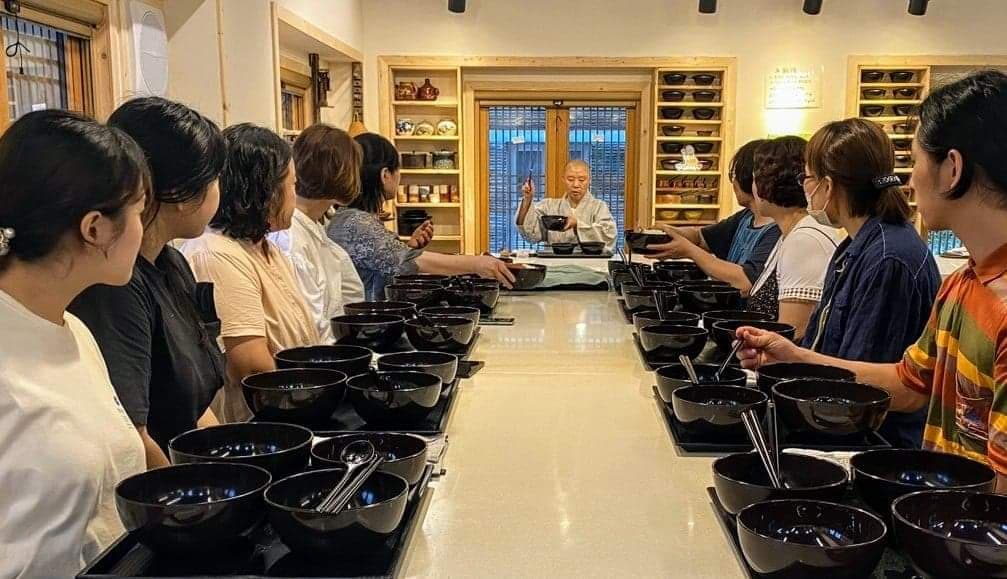
“It has already been more than eight months since we began living with masks on. We’re going through a war without guns. The diseases of nature are of our making, of my making.”
“I can tell who I was in the past by looking at who I am in the present, and I can predict who I will be in the future. We humans, who have to breathe with nature, are captive to nature’s laws of survival, but at the same time, we must abide by the laws of life with considerations beyond the laws of the weak and the strong.”
“When I was a child, we used to scoop water out of a well and eat rice soaked in water with pickled vegetables. The experience of eating cucumbers and eggplants in the field when I was five or six years old made me who I am today. We used to drink natural water, but as we became Westernized, the ‘natural I’ gradually disappeared” [as processed foods became more of a part of the diet].
“An object called ‘I’ is a single seed. We humans came into this world by borrowing our parents’ bodies, but we are a new seed, a totally different being than our parents or siblings. We are born from nothing and go back to nothing after going through our lives. This is the transcendental self; the ‘I’ comes from nothing, but the ‘I’ creates something. When the ‘I’ comes out of the womb, the ‘I,’ the most precious person in the world, breathes alone without anyone else’s help. They are a substance created from earth, water, fire, and wind, with the power to realize – a singular substance that can move itself.”
“A dish made by the true me is the best dish in the world. The guest is not the king – the king is the one who makes the best foods with the best ingredients. You have to cook with your whole heart to show who you really are.”
“People say that food is medicine. But when they are sick, they go to the hospital and take medicine. We should not, however, forget the power of natural food. To make food complete, you need to cook in a manner that makes sense. To do that, you need to know the ingredients first. Watching the ingredients grow season by season, you have to decide whether to pick it in the morning or in the evening. You need to taste, feel, and remember each moment.”
“Living by the laws of the universe, nature, and human beings, I should constantly reflect on myself. Making food is itself fulfillment.”
Master Park Hye-ran
After meditating on the words of Monk Jeong-gwan, we were treated to a class by Park Hye-ran, the master of the rice cake. From her, I learned that from as far back as recorded history goes, Koreans shared rice cakes with their neighbors for any special event, happy or sad. Among the many types of rice cakes, red-bean rice cake (pat-tteok, 팥떡) was the most popular. It is still used today in performing rites to bring good fortune, carrying with it a shamanistic superstition: Spirits of all types fear red. So, to avoid misfortune, people prepared and shared red-bean rice cake. That is also the reason why red beans are not used in preparing the table of foods for rites to the dead. Instead, the rice cakes for these rites are made with white beans, mung beans, or sesame; red foods are avoided in order to invite the spirit of the deceased.
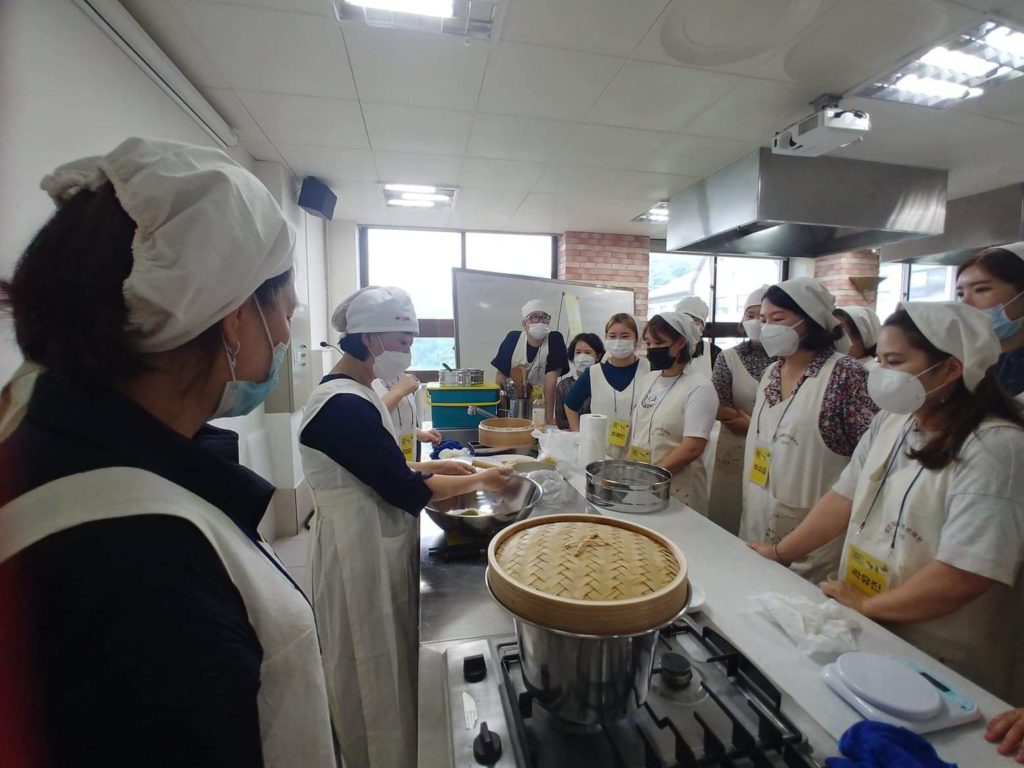
Master Min Kyung-suk
The next master’s session was devoted to jeho-tang (제호탕, a boiled medicinal beverage) and was led by Min Kyung-suk. Master Min told us that, according to the Dongui-bogam (동의보감, 1613), Korea’s best-known traditional Book of Medicine, jeho-tang cools down the body from the summer heat and reduces thirst. Wishing for good health throughout the hot summer months, the kings of the Joseon Dynasty gave jeho-tang to their subjects along with Dano fans on the holiday of Dano (단오, the 5th day of the 5th lunar month).
To make jeho-tang, one must boil the medicinal herbs with water, add honey to the medicinal water, and boil it again until the mixture becomes sticky. The sticky mixture is then stored in a pot and tea is made with it during the summer to combat the heat.
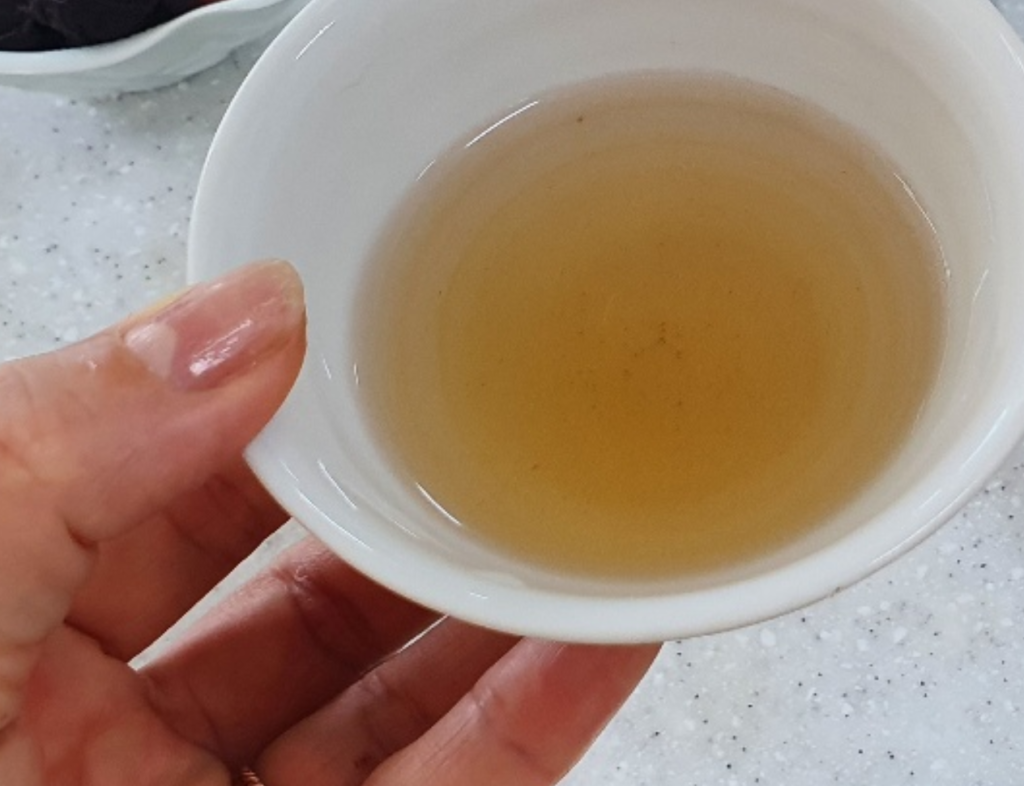
To the young man in our group who said the jeho-tang smelled like a medicinal sauna, Master Min replied, “Try it. We humans can remember a food by having it just once in our lifetime. A taste is amazing. It can increase our feelings of joy just as music does. What kind of food will increase your joy?” When the master asked this question, I felt thrilled. I realized that food is also like a tune: It brings joy to those who are attentive. What food comes to mind when someone thinks of you?
Master Choi Young-ja
In early August, our Daemullim Project team had lessons from Choi Young-ja, another master of traditional Jeolla dishes. Her daughter, Eun-kyung, who learned from her mother, also assisted in helping us learn about traditional foods. The master and her daughter teach about hundreds of Namdo (South Jeolla Province’s) foods, especially festive dishes for special events such as weddings, birthdays, and ancestral rites.
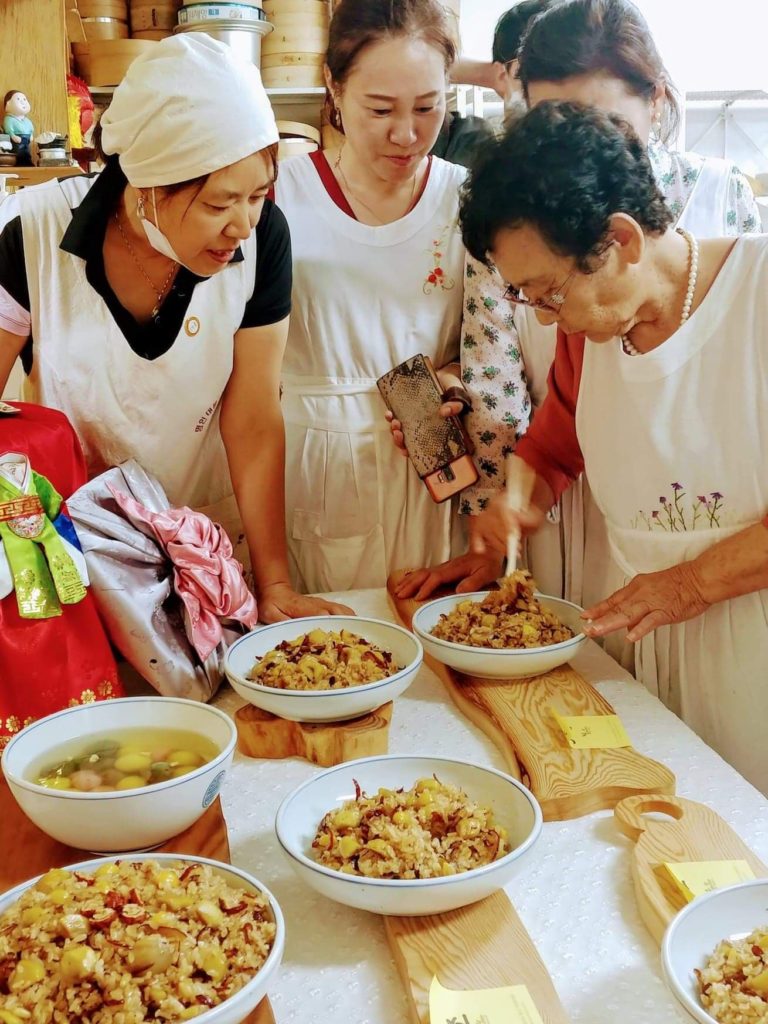
Our project team learned from Master Choi how to prepare nutritious sticky rice with various nuts and beverages for summer. One of these summer beverages, omija-cha (오미자차), is made from the bright-red omija berry, also known as five-flavor-fruit, or magnolia berry. From this beverage-making experience, I felt that cooks of olden times had romantic fingers.
Temple-Stay in Nature’s Bosom
Thanks to Professor Song’s planning, the project included a one-night temple-stay for the participants in August. The temple-stay was at Monk Jeong-gwan’s Cheonjin Hermitage, one of many hermitages within the huge Baekyang Temple complex in Jangseong County and not far from Gwangju. We had regular classes in the daytime, but staying at the temple itself afforded us a unique experience.
Some of the participants prepared snacks for recreation in the evening. In particular, Honam University cooking science majors prepared buchimgae (부침개), a pan-fried pancake that includes Korean mint leaves, and it tasted amazing! Some of the students had majored in cooking from their high school days, so they were already excellent cooks. During the evening, there was talk about marriages in the married women’s quarters, while giggling was heard from the young ladies’ room. We shared life stories and felt closer to each other.
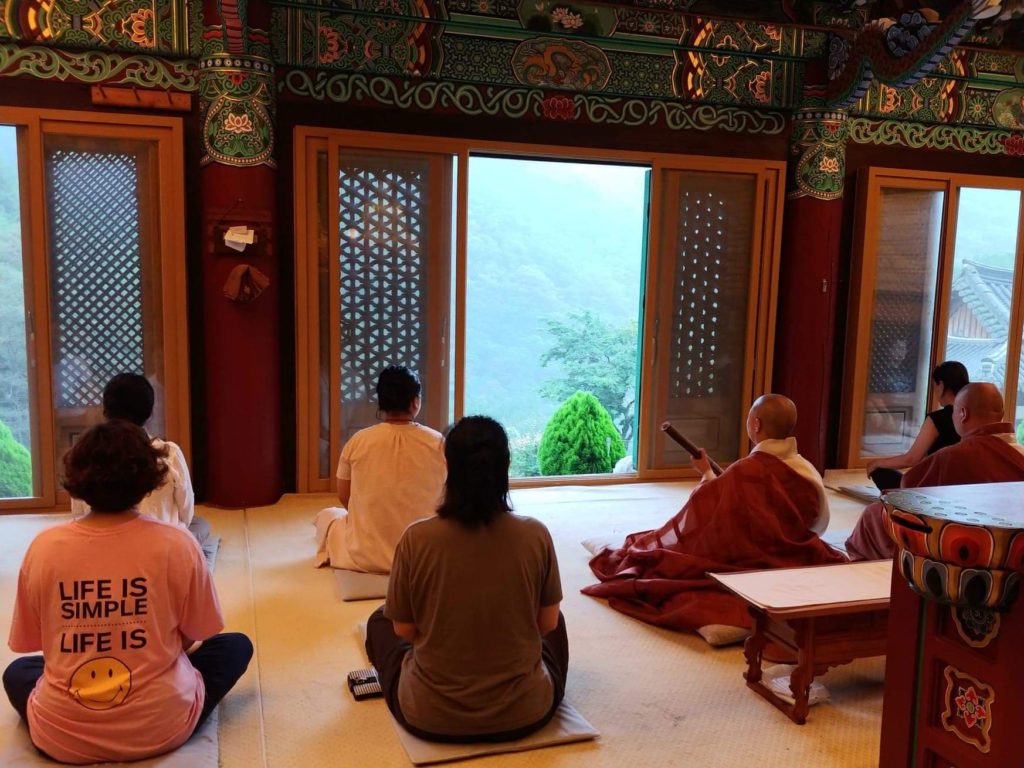
The next day, we woke up early in the morning for meditation, gazing at the mountains through the window. Monk Jeong-gwan told us that walking is another form of meditation. So, we walked around the temple grounds, breathing in the fresh mountain air.
One young mother said that the temple-stay was her first time to be away from her family since she had gotten married. At first, she felt uncomfortable to be away from her children for the night. But soon she felt calm and could concentrate on herself by doing the meditation at dawn and having Zen food at the temple. When she joined this program, she wanted to get some helpful ideas for opening her own restaurant, but she was able to get much more than that in the end. She said, “It gave me a chance to reflect on myself.”
Another young lady who is planning to open a tea place in Naju, a city just south of Gwangju, said that when she learned how to prepare a hearty lunch box from Monk Jeong-gwan, she wanted to present it to her mother, who has always made hearty dishes for her. How nice!
As for myself, I felt that good food leads to a good mind.
Yet to Come
As of this writing, we have not yet learned from Master Oh Hee-sook. She brands herself as a “traditional grand master” of bugak (부각), or crisps made by deep-frying dried vegetables, seaweed, or even fish, and then drying them again. Master Oh has her own crisps manufacturing company and online shopping mall for her products. I am sure that we can learn from her not only how to prepare foods but also about large-scale production, marketing, and sales. I am eagerly looking forward to Master Oh’s classes and what the rest of the Daemullim Project has to offer.
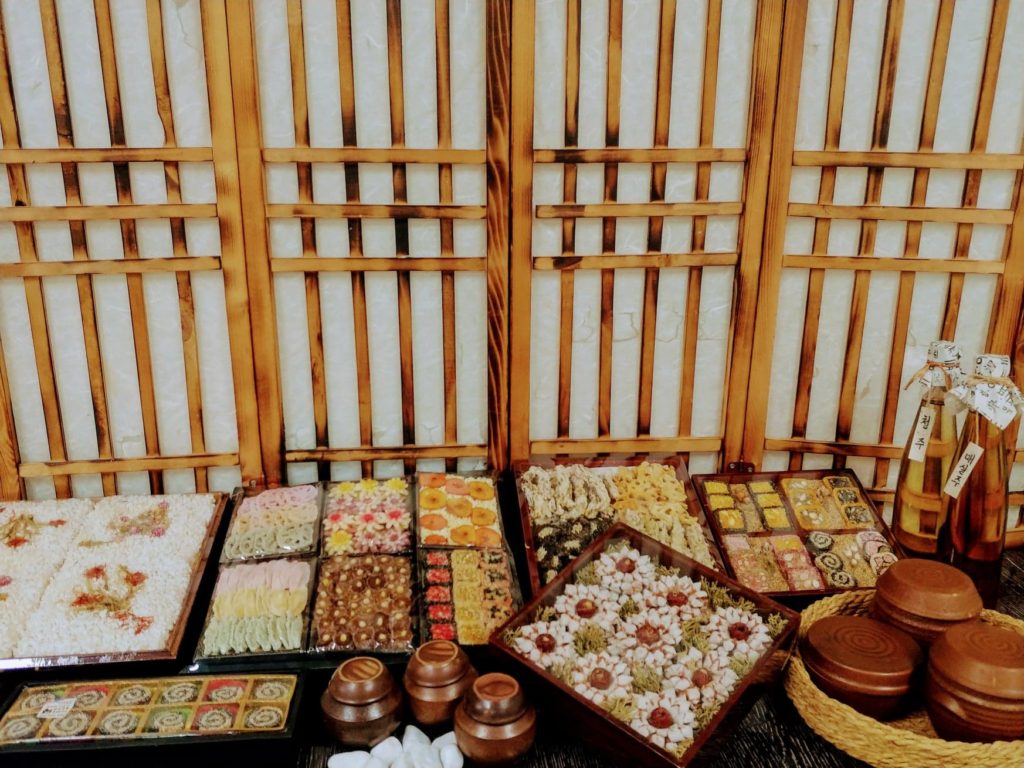
Through the Daemullim Project, I am now a person who can make rice cake like my mother. I very much appreciate the masters who have so eagerly revealed their cooking tips and recipes to the next generation. While studying with the masters, I have come to think more broadly about the power of food. Food is not simply consumed as a source of human energy, but is also the embodiment of love and sincerity. It is my hope that many more people will be able to discover and enjoy the sincerity and love that go into the creation of traditional Korean dishes.
Photographs by Kang “Jennis” Hyeon-suk and Kim Seon-jeong.
THE AUTHOR
Kang “Jennis” Hyeon-suk teaches English to young learners because she loves children. She is full of curiosity and energy. She loves to grow greens in her garden and cook with them in her kitchen. She likes reading and writing in English, Japanese, and Korean. And she also likes oil paintings and playing with puppets. Someday you might see her at a puppet show. Email: speer@naver.com







